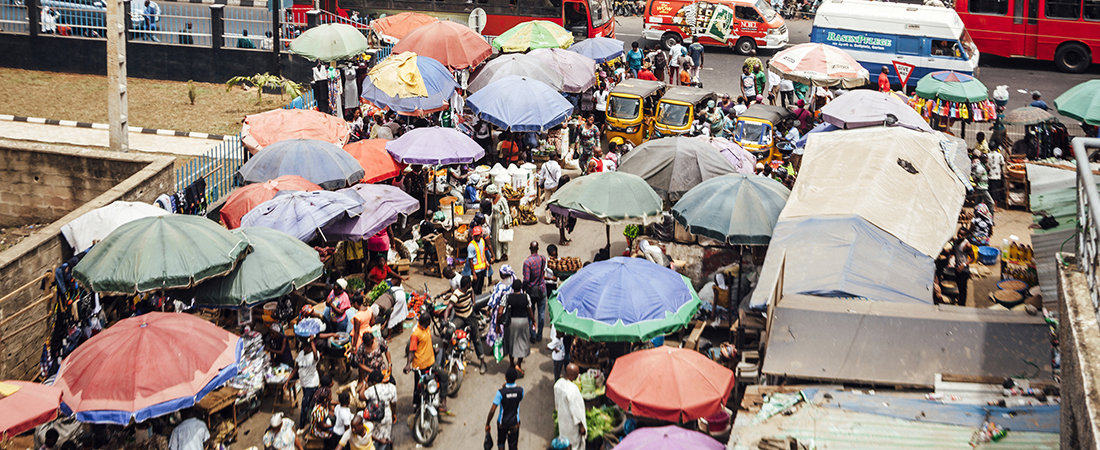Just a few months after being elected Conservative Party leader, David Cameron flew to Rwanda. It was a high-profile trip so he could see first-hand the development of one of Africa’s fastest-growing economies and launch his party’s review on globalisation and global poverty.
On his first day, he visited a textile factory in Kigali, the country’s capital. Above the hum of the silk reels, he chatted to some of the workers and admired the quality of the patterned fabrics. Before he left, the factory owner, Raj Rejendran, asked for a word. Growing the business, he explained, required expanding into overseas markets. He knew there was demand in the UK for his silk fabrics, but he faced heavy import duties. Might the new party leader look into the issue?
David Cameron promised to do what he could. Since becoming leader he had made tackling global poverty a personal priority. He had even put Africa’s interests above those of his own constituents, heading to Rwanda when thousands of homes in his Oxfordshire constituency were under flood water.
But there was little help the Tory leader could offer Mr Rejendran or any other African entrepreneur who wanted to reach British customers. That’s because the UK’s import duties are set in Brussels, not London.
For decades EU policies have held back and distorted African economic growth. Take coffee as just one example. Calestous Juma at the Harvard Kennedy School calculates that in 2014 Africa earned nearly $2.4bn from coffee grown in rich African soil and picked by African workers. By contrast, Germany’s coffee processing industry makes $3.8bn from roasting imported raw beans and then re-exporting them.
Surely, you would think, African countries would roast their own crop before exporting it to Europe so they could reap the extra value. The EU, however, slaps a 7.5pc charge on roasted coffee imports. The tariff perfectly protects German coffee processors while stunting African manufacturing.
The EU has tried to address the worst iniquities of its trade policies in recent years but the Common Agricultural Policy contains a complex system of subsidies which harms African agricultural competitiveness. With more than 60pc of Africa’s economically active population working in agriculture, it takes a toll on the livelihoods of millions of Africans.
Brexit – whether you welcome it or not – provides a game-changing opportunity for Africa and the UK. Outside the customs union, the new Government could fundamentally change its relationships with the countries of the continent to the advantage of both Africa and the UK.
These benefits have been identified in a report from a committee of distinguished African and British politicians and business leaders. Their inquiry into the UK’s efforts to boost trade in Africa through the Africa Free Trade Initiative gathered evidence from more than 60 experts over six months.
The report, published a fortnight ago, does not shy away from the significant short-term challenges to trade posed by Brexit. But these are eclipsed by what Ali Mufuruki, the Tanzanian entrepreneur who co-chaired the inquiry, describes as the “big prize”. Brexit, the inquiry concludes, provides “an opportunity for the UK to lead the world in structuring a pro-development trade policy with Africa”.
The example of the US shows what could be achieved. Through the Africa Growth and Opportunity Act (AGOA), almost all products from the continent now have duty-free entry into the US. This has been coupled with a package of trade-boosting summits, missions, business councils and regional trade hubs.
The impact for both Africa and US businesses has been dramatic. The Act is credited since 2000 with creating more than a million jobs in Africa and generating more than $26bn in duty-free exports to the US. At the same time US exports to sub-Saharan Africa have quadrupled. It all points to what the UK could do.
Some critics of Brexit accept that the UK will now have the freedom to alter trade policy in favour of supporting African development but doubt the institutional bandwidth exists to develop a set of enlightened trade policies. They believe all our efforts will be expended instead on trying to agree trade deals with the world’s big economies.
But if British policy makers require motivation, then they should take a sideward glance at Turkey. Ankara has developed a strategic partnership with Africa, establishing trade agreements with 38 African countries and growing its network of embassies from just 12 in 2009 to 39 today. As a result, bilateral trade volumes have enjoyed a threefold increase since 2003. All this while sharing a 500 mile border with Syria.
Brexit gives the UK a chance to strike a bold and ambitious deal with African countries, focusing on trade as the route out of poverty. Taking the best from AGOA, it should combine easy access to the UK for African exporters, more investment from the aid budget to build Africa’s trade capacity, and world-beating infrastructure on the ground to get deals flowing.
The Africa Prosperity Partnership, as it could be called, would then be the gold standard of trade and development policy the world over. It would be a powerful motor for employment and prosperity across Africa. Importantly too, it would offer the best possible proof that Britain outside the EU is a force for good internationally and provide a sharp riposte to those who believe Brexit means our retreat from the world.
Brexit should not only be good for Africa, but Africa could be good for Brexit too.
This article was originally published in The Daily Telegraph. Toby Orr is a senior partner at Portland and a director of Trade Out of Poverty.

